Svaneti: A trip into Georgia’s breathtaking highlands
Northern Georgia is a mysterious mountain land of stone towers, isolated communities and jaw-dropping scenery
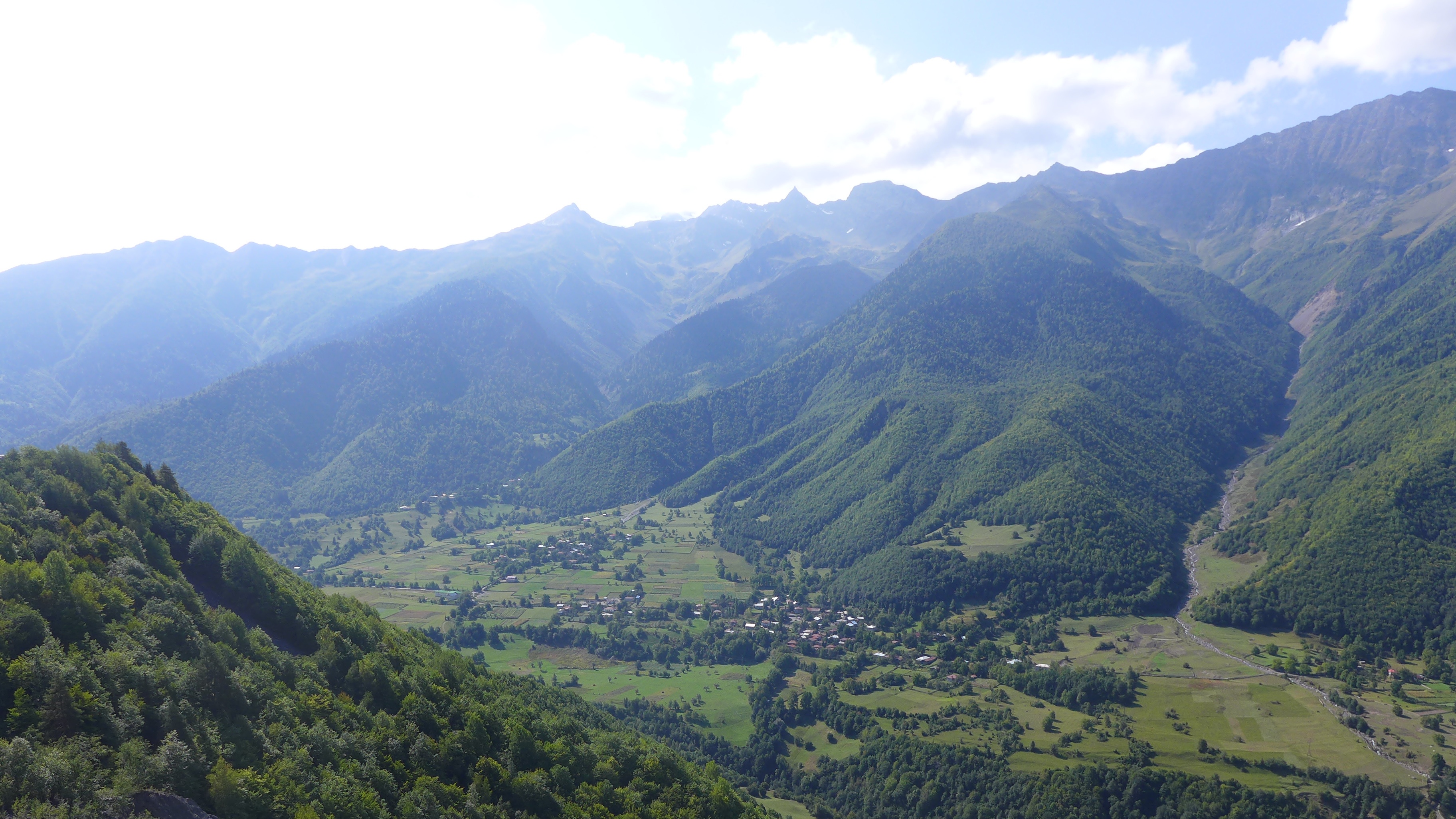
A free daily email with the biggest news stories of the day – and the best features from TheWeek.com
You are now subscribed
Your newsletter sign-up was successful
I’m sitting in a car, at a crossroads in Georgia, staring at the Caucasus Mountains in the distance. Folk music is blaring through the car’s speakers and, like the landscape in front of me, the soundtrack is absurdly dramatic. The mountains are where my guide David and I are headed, but we are not going anywhere right now. Unfortunately, the road is full of cows and they are not moving anywhere fast.
We’re driving to Svaneti, a northwestern region of Georgia that borders with Russia, and an increasingly popular holiday destination. The day’s journey began in Batumi, a port town on the Black Sea not far from neighbouring Turkey. With its vineyards and villas, lowland Georgia has a curiously Mediterranean feel, albeit with all the hallmarks of an ex-Soviet nation. Decades-old Ladas, overland gas pipes, the odd sign in Cyrillic and ostentatious monuments litter the landscape. A constant reminder of the nation’s history.
After David takes the car on a careful detour around the cows, we gather speed. As we climb in altitude, the humid air grows thin. On the roadside, local farmers sell honey in repurposed plastic bottles. I bought some for 10 lari (around £2.50), and dip a finger in the bottle; it’s the most fragrant, delicious honey I’ve ever tasted.
The Week
Escape your echo chamber. Get the facts behind the news, plus analysis from multiple perspectives.

Sign up for The Week's Free Newsletters
From our morning news briefing to a weekly Good News Newsletter, get the best of The Week delivered directly to your inbox.
From our morning news briefing to a weekly Good News Newsletter, get the best of The Week delivered directly to your inbox.
A major landmark on the road into the mountains is the Enguri Dam, a huge hydroelectric power plant built during the 1960s. A colossal feat of Soviet engineering, one of half the dam’s power goes into Georgia, the other into Abkhazia, the troubled republic which seceded in the turbulent years after the dissolution of the USSR. Then, as snow-capped peaks replace the hills, we enter the mountains and it is not long before a sign to our destination, Mestia, appears.
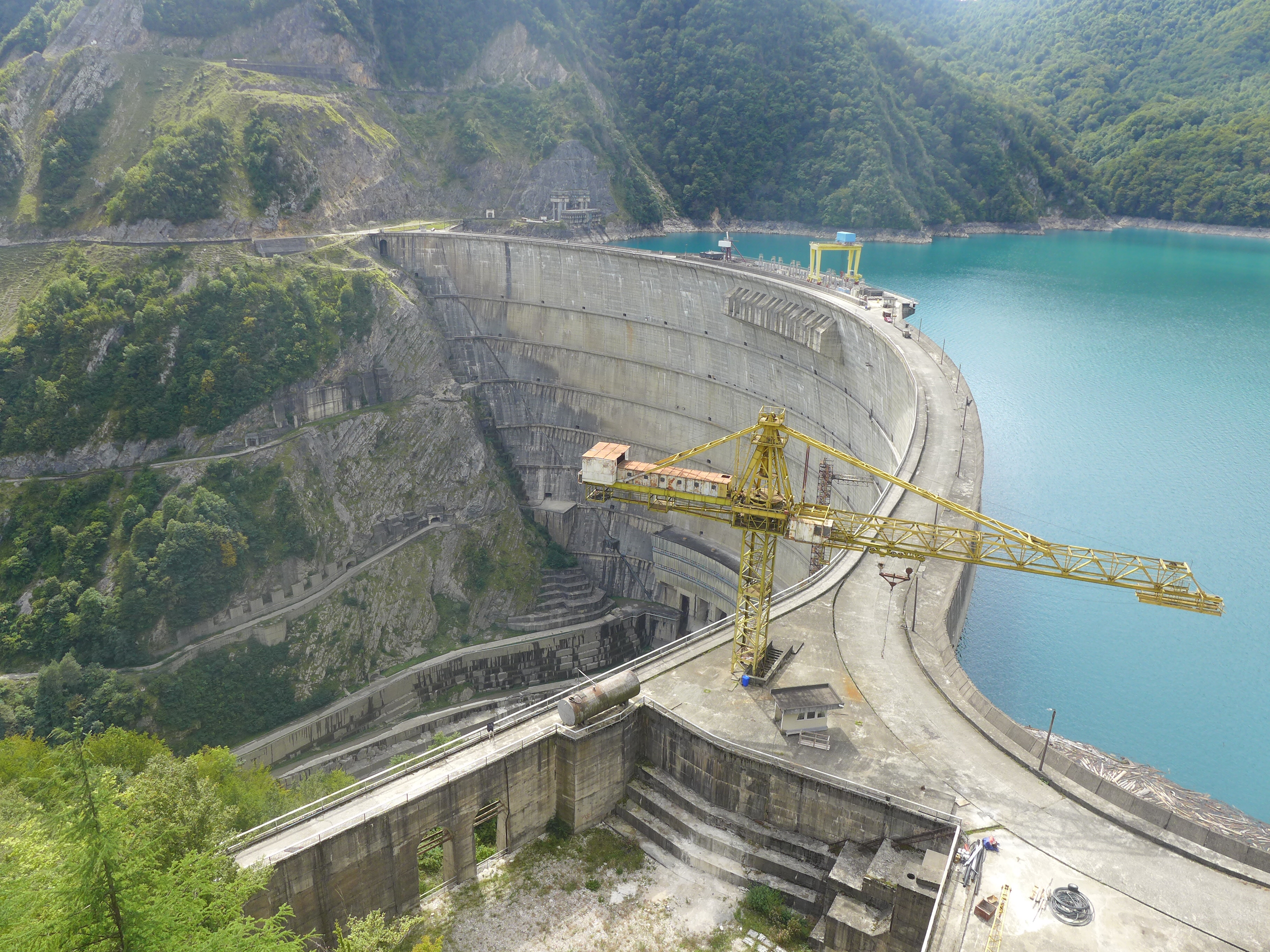
Mestia, a town of less than 2,000 people, is the most popular tourist stop-off-point in Svaneti. For those who don’t have a guide like me and don’t have the nerve to brave the roads themselves, there are regular flights from Tbilisi, Georgia’s capital, to the tiny Queen Tamar Airport just outside the town.
Georgia is a country in the Caucasus, a region whose mountainous terrain has left communities isolated and separated for centuries (it’s only bested by Papua New Guinea in terms of ethnic and linguistic diversity). The Svan of Svaneti are a perfect example, a highland people who are ethnically Georgian, but have developed an entirely unique identity. This includes an eighteen-vowel language and traditions that include polyphonic singing and (gulp) settling disputes through blood feuds.
I doubt there’s much of the latter going on these days, and luckily the bandits that unfortunate tourists used to encounter on the open roads have declined considerably in recent years. Never once did I feel unsafe in Mestia. Much like every other Georgian I met during my week-long stay in the country, the townspeople here are friendly, generous and hospitable.
A free daily email with the biggest news stories of the day – and the best features from TheWeek.com
If you want a crash course in Svan history, head to the Svaneti Museum of History and Ethnography, where there are all sorts of fascinating artefacts on display, including medieval icons featuring Saint George, the Greek solider from whom Georgia gets its name.
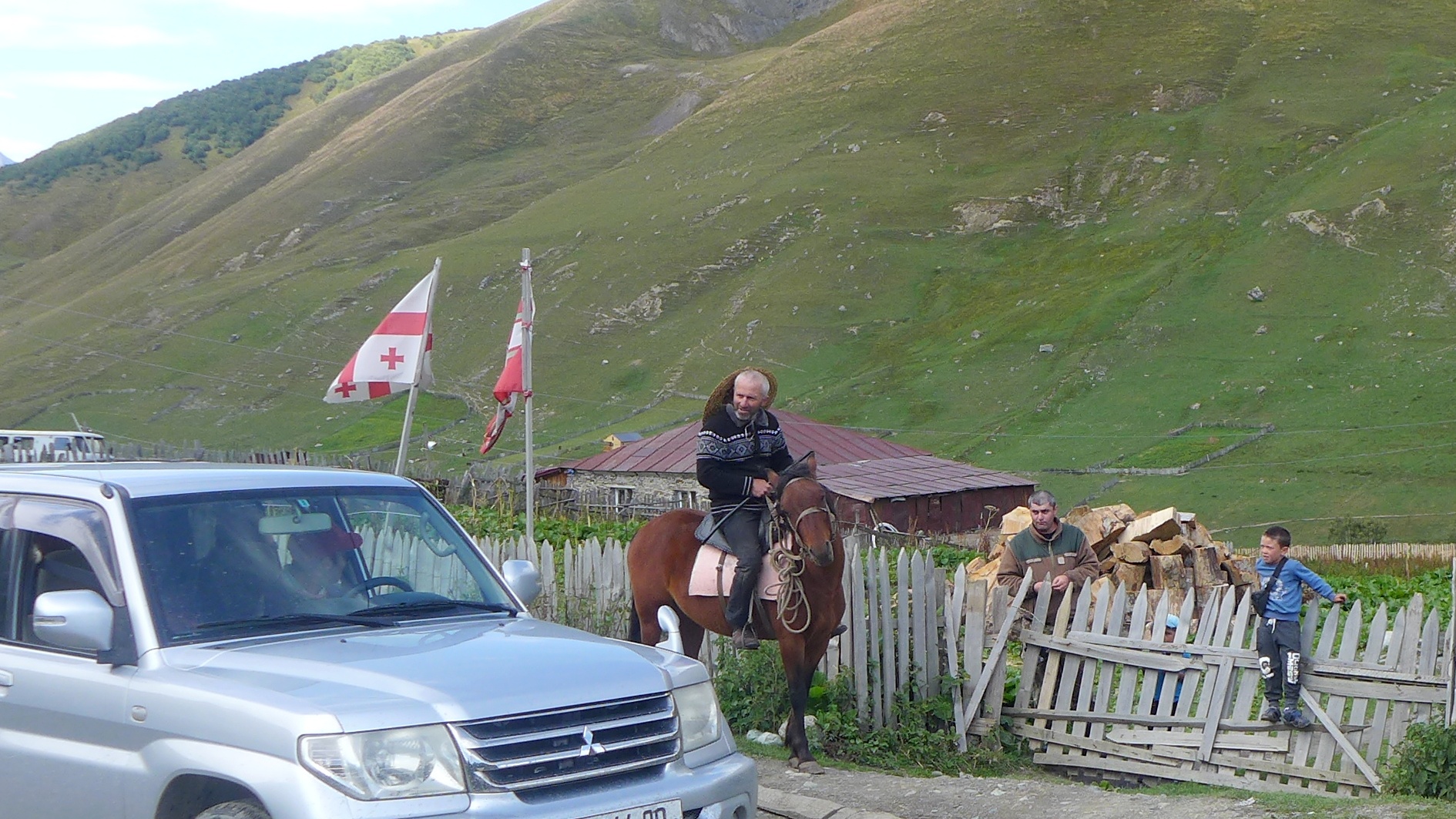
I’m staying at Guesthouse Zoia, run by the eponymous Zoia and her daughters. Bad weather has put the Wi-Fi out of action, but it only adds to the sense of seclusion. Plus, the view out of my room’s window is one heck of a distraction. Mestia is girdled by a huge wall of mountains, among them the vast, three-peaked Mount Skhara, which looks like something straight out of Middle-earth.
Smaller, but no less eye-catching, are the koshkebi that are dotted throughout Mestia. These short, anonymous stone towers date back to anywhere between the thirteenth and ninth centuries, and you’ll find hundreds of them dotted throughout Svaneti. Historically, they were a defense for local communities when they were under attack from enemies, and while they are now protected by UNESCO, they remain in the care of local Svan families, who occasionally open them up for curious tourists.
I’m lucky enough to be let into one by a local who is friends with David. As I climb up a floor, and peer through one of the tiny windows, I find myself thinking about century after century of Svan taking refuge against invaders, whether they be from Persia, the Mongol Steppes or imperial Russia. Svaneti might be isolated and sparsely peopled, but it’s still part of a world that feels steeped in history.
On our second day in Mestia, David and I drive to Ushguli. At 2,200m above sea level, this group of tiny hamlets claims to being Europe’s highest settlement. The road to Ushguli is perhaps the most dangerous one we venture along during the trip. As we drive, the way ahead is fraught with sudden hairpin turns, piles of fallen rubble, an absence of barriers and, yes, more of those stubborn cows. Every now and then, I notice a tiny model church on stilts appears at the roadside; David explains these are memorials to people who have died in car accidents.
Driving is so hazardous here, that a group of Polish backpackers staying at the same guesthouse as me explain that they although they had rented a car in Tbilisi, the rental company expressly forbade them from taking it along the road to Ushguli. “They said they would track us with GPS,” one of the group told me. “If we took the car to Ushguli, we would receive a fine. Only experienced locals should drive to Ushguli.”
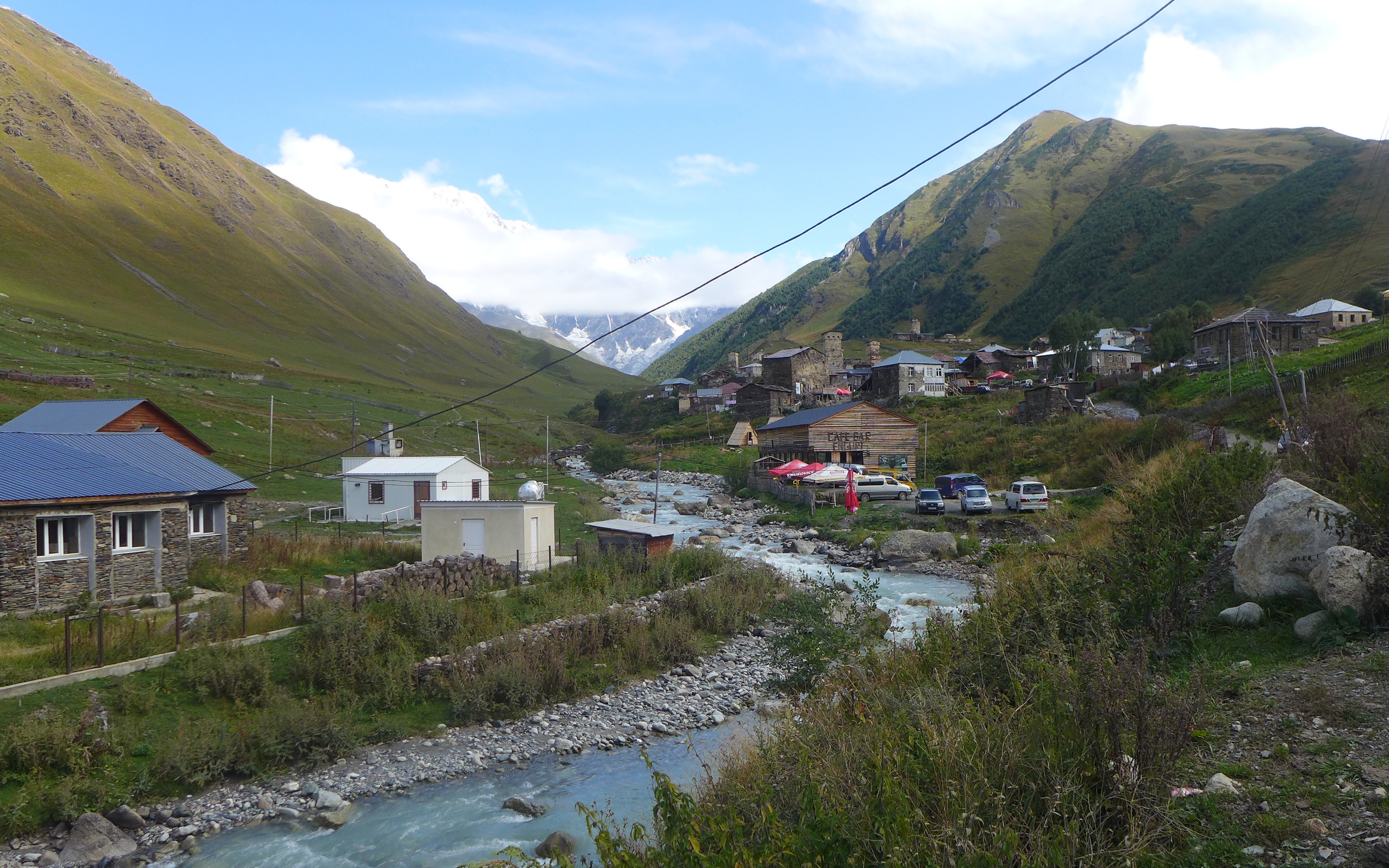
But with the nerve-wracking roads comes scenery so awe-inspiring that you can’t quite believe your eyes. The UK, green and pleasant though it may be, is simply toy-sized by comparison to the jagged ravines and breathtaking waterfalls.
Our first stop in Ushguli is St Lamaria Church, a tiny stone church whose origins are shrouded in mystery. It could be as much as 1,200 years old and is now looked after by Georgian Orthodox priests and local volunteers. Step inside, and you’re met with the scent of incense, and the eyes of the Holy Mother and various saints staring at you from behind glass panes. Even for an unbeliever like myself, the experience is unnerving.
David and I sit down for lunch at Cafe Enguri. We eat khinkali, Georgian dumplings that you eat with your hands, and khachapuri, cheese-slathered bread served with a slice of butter. It’s heavy stuff, but with the thin air and hilly terrain, you’ll be grateful for the calories - especially if you’re at the end of the Mestia to Ushguli hike.
Many of the tourists who come to Svaneti are there for this four-day trek, which is becoming increasingly better known in hiking circles. There’s a few scare stories on online forums about encounters with aggressive guard dogs, but the hikers I chatted with at the cafe had experienced none of this. Instead, they told me about the countless photo opportunities and the warm reception they were given at guesthouses each night, where the hosts might not have been able to guarantee 24-hour electricity, but insisted on sending them off with their leftover breakfast in a bag to keep them fuelled during the hike.
Back in Mestia that evening, I am exhausted by the fresh air and gorgeous scenery. David and I sit down to a meal at Hotel Posta, where we watch local musicians play folk music and sing in the Svan polyphonic tradition. The wine is flowing, and spirits are clearly high among a party of middle-aged Georgian men. Before long, they are dancing to the music Caucasus-style; arms held aloft, pirouetting on the spot like a ballerina. It seems that wherever you look in Svaneti, there are surprises to be found.
The tourist footfall in Mestia is increasing every year - even in the merciless sub-zero winter months, when the ski resorts do a booming trade. Svaneti may be a poorly-kept secret, but it feels wild and secretive all the same. A place of gasp-inducing views, centuries-long history and genuine adventure.
I connected with David through Indy Guide, a website that links tourists with local guides in Russia, the Caucasus and Central Asia. Guesthouse Zoia can be booking through booking.com. Rooms cost an average of £18 a night, with breakfast included.
-
 Health insurance: Premiums soar as ACA subsidies end
Health insurance: Premiums soar as ACA subsidies endFeature 1.4 million people have dropped coverage
-
 Anthropic: AI triggers the ‘SaaSpocalypse’
Anthropic: AI triggers the ‘SaaSpocalypse’Feature A grim reaper for software services?
-
 NIH director Bhattacharya tapped as acting CDC head
NIH director Bhattacharya tapped as acting CDC headSpeed Read Jay Bhattacharya, a critic of the CDC’s Covid-19 response, will now lead the Centers for Disease Control and Prevention
-
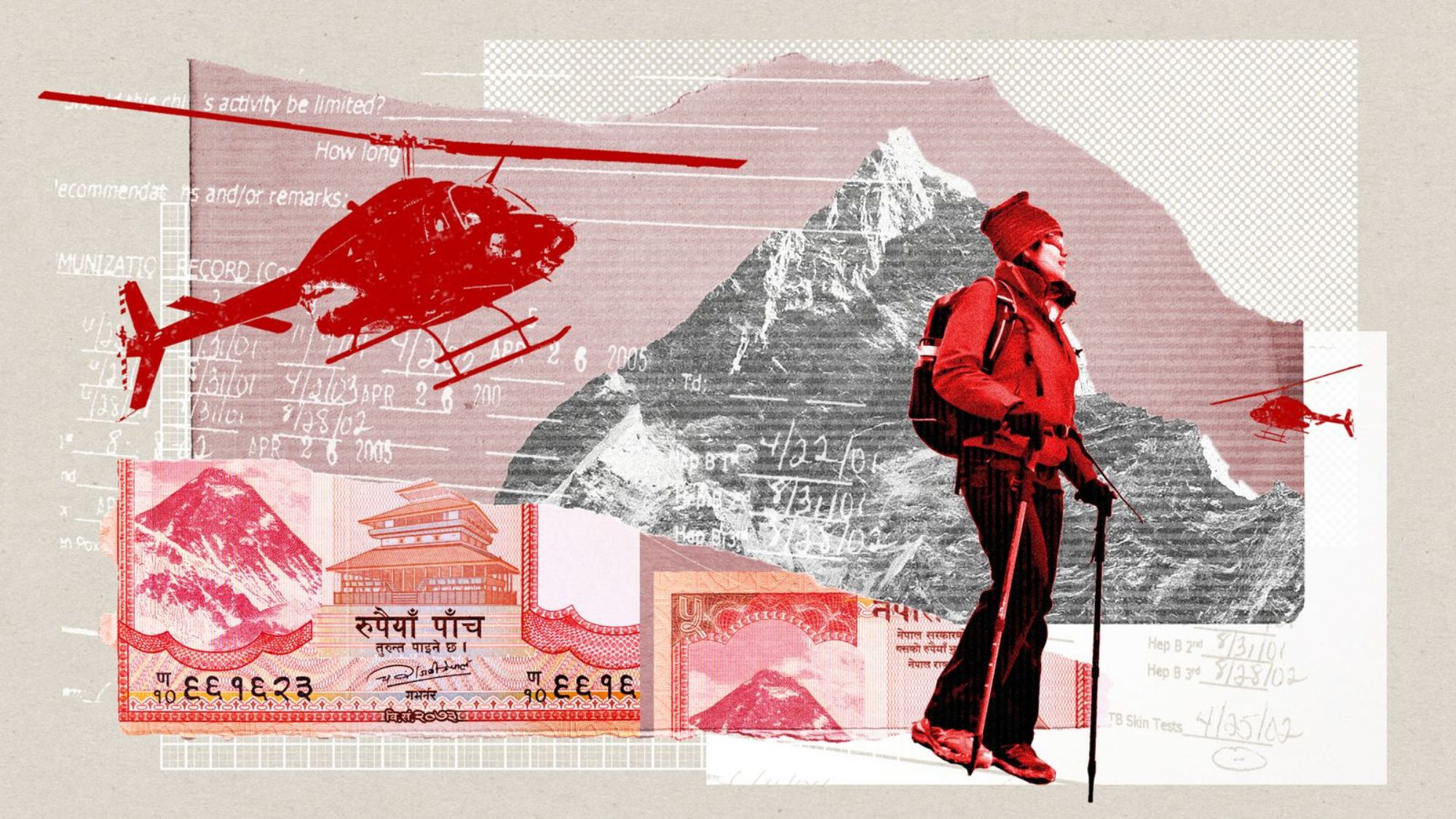 Nepal’s fake mountain rescue fraud
Nepal’s fake mountain rescue fraudUnder The Radar Arrests made in alleged $20 million insurance racket
-
 DC tourism has taken a hit
DC tourism has taken a hitUnder the Radar The government shutdown has reduced tourist attractions
-
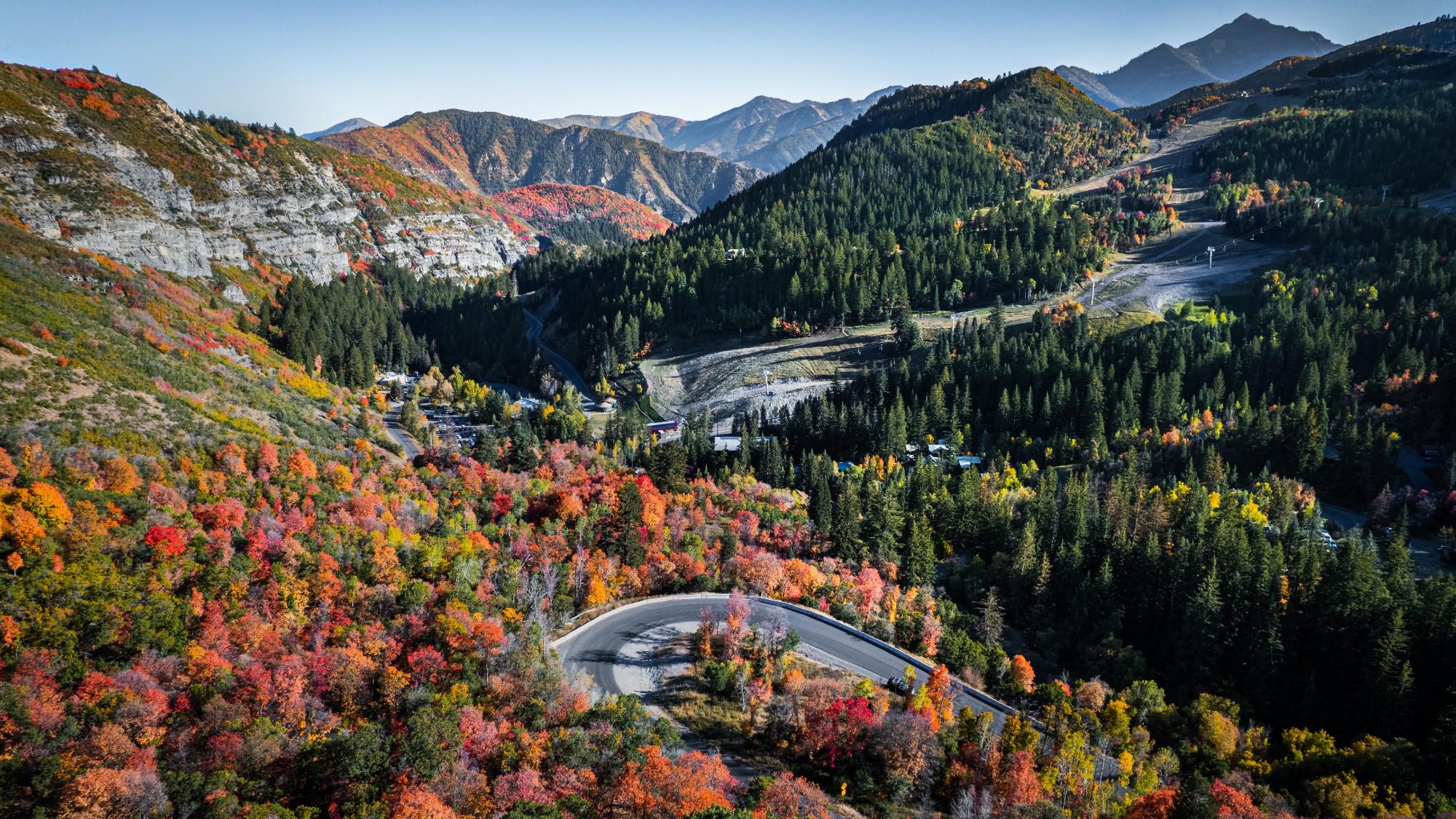 7 mountain hotels perfect for a tranquil autumn or winter escape
7 mountain hotels perfect for a tranquil autumn or winter escapeThe Week Recommends Get (altitude) high and unwind
-
 9 haunted hotels where things definitely go bump in the night
9 haunted hotels where things definitely go bump in the nightThe Week Recommends Don’t fear these spirited spots. Embrace them.
-
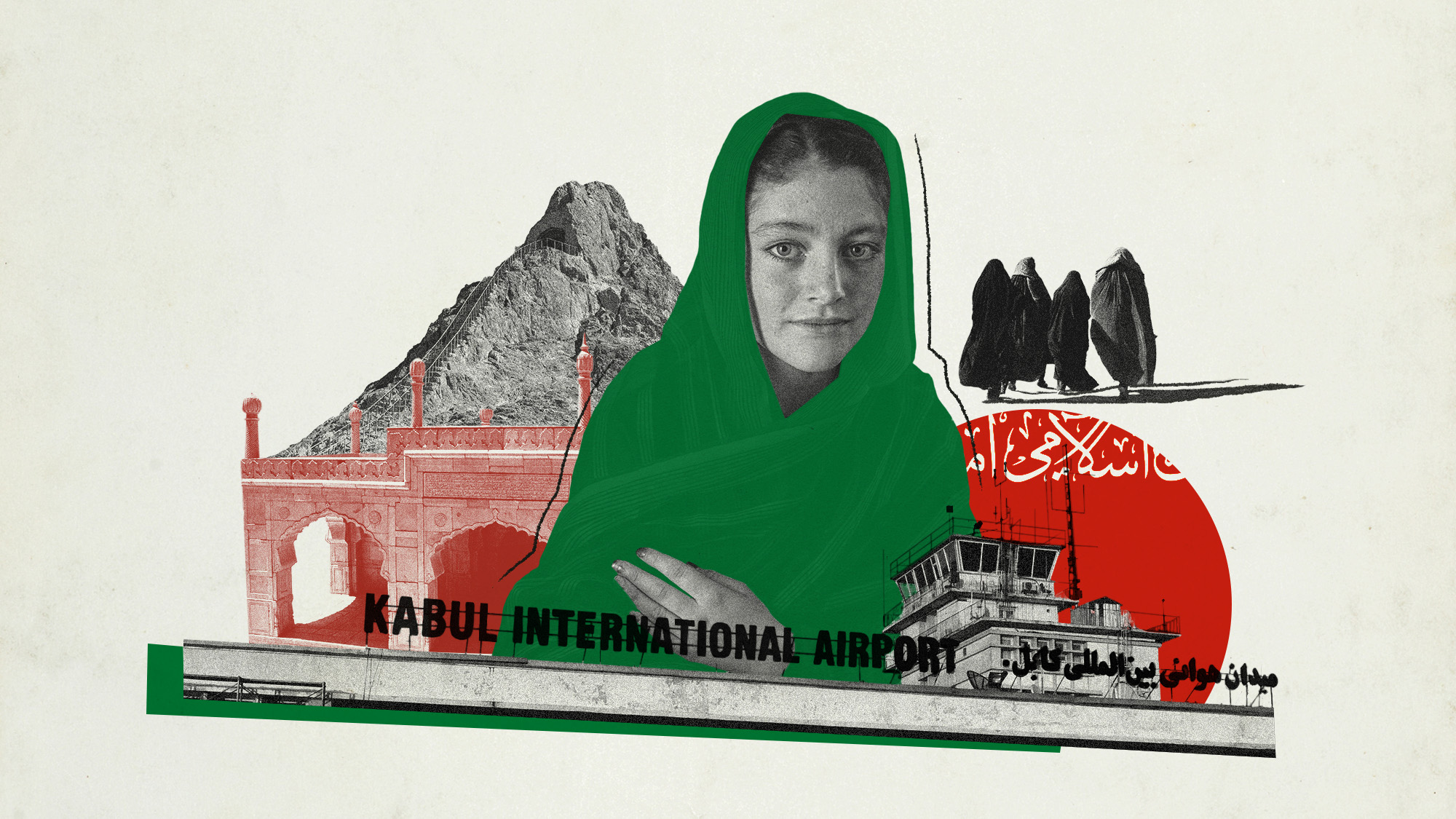 The female-led all-women tours in Afghanistan
The female-led all-women tours in AfghanistanUnder The Radar Women are 'swapping cocktails in Ibiza' for visiting a 'terror hotspot'
-
 Friendship: 'bromance' comedy starring Paul Rudd and Tim Robinson
Friendship: 'bromance' comedy starring Paul Rudd and Tim RobinsonThe Week Recommends 'Lampooning and embracing' middle-aged male loneliness, this film is 'enjoyable and funny'
-
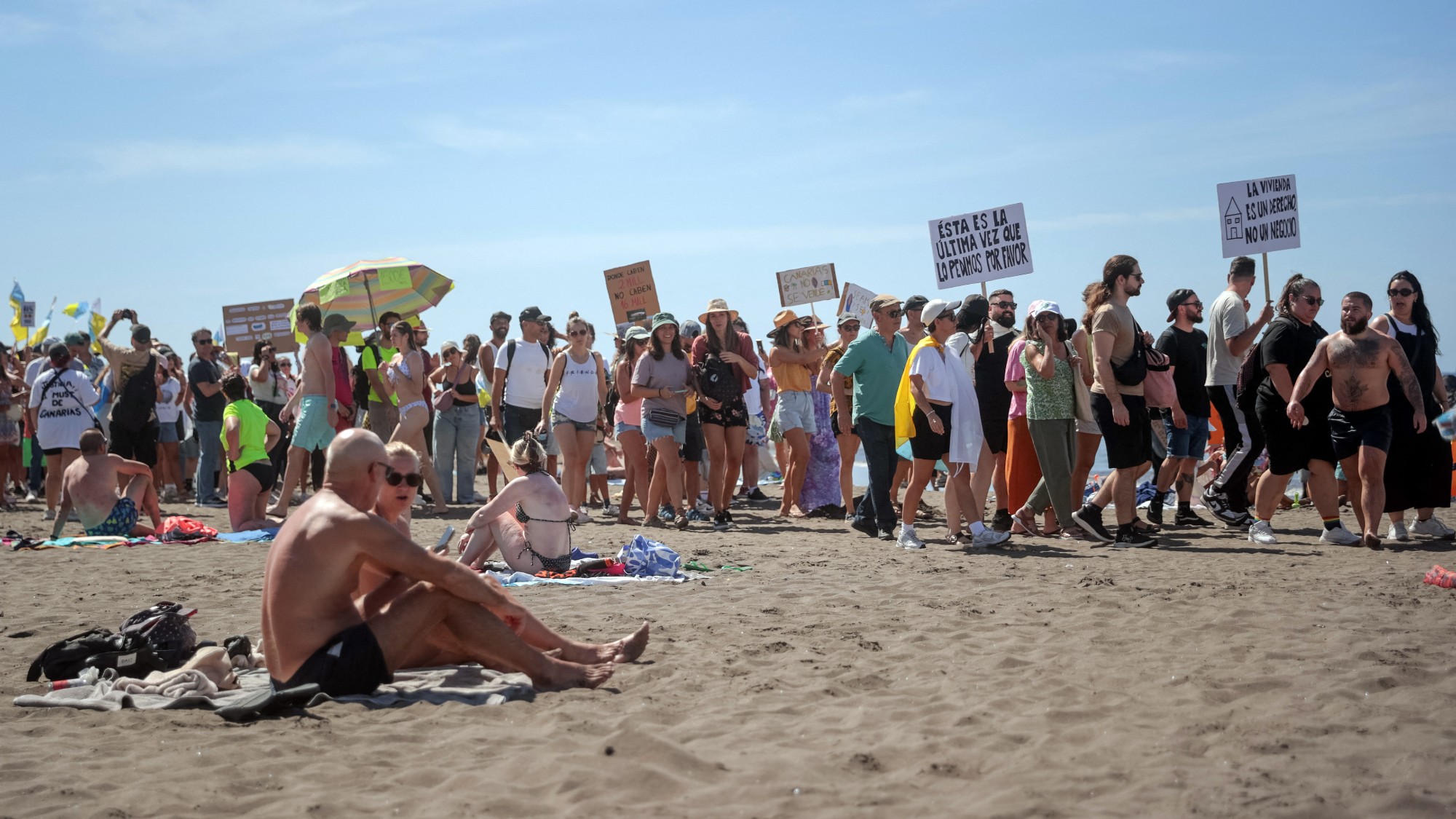 The tourist flood in the Mediterranean: can it be stemmed?
The tourist flood in the Mediterranean: can it be stemmed?Talking Point Finger-pointing at Airbnb or hotel owners obscures the root cause of overtourism in holiday hotspots: unmanageable demand
-
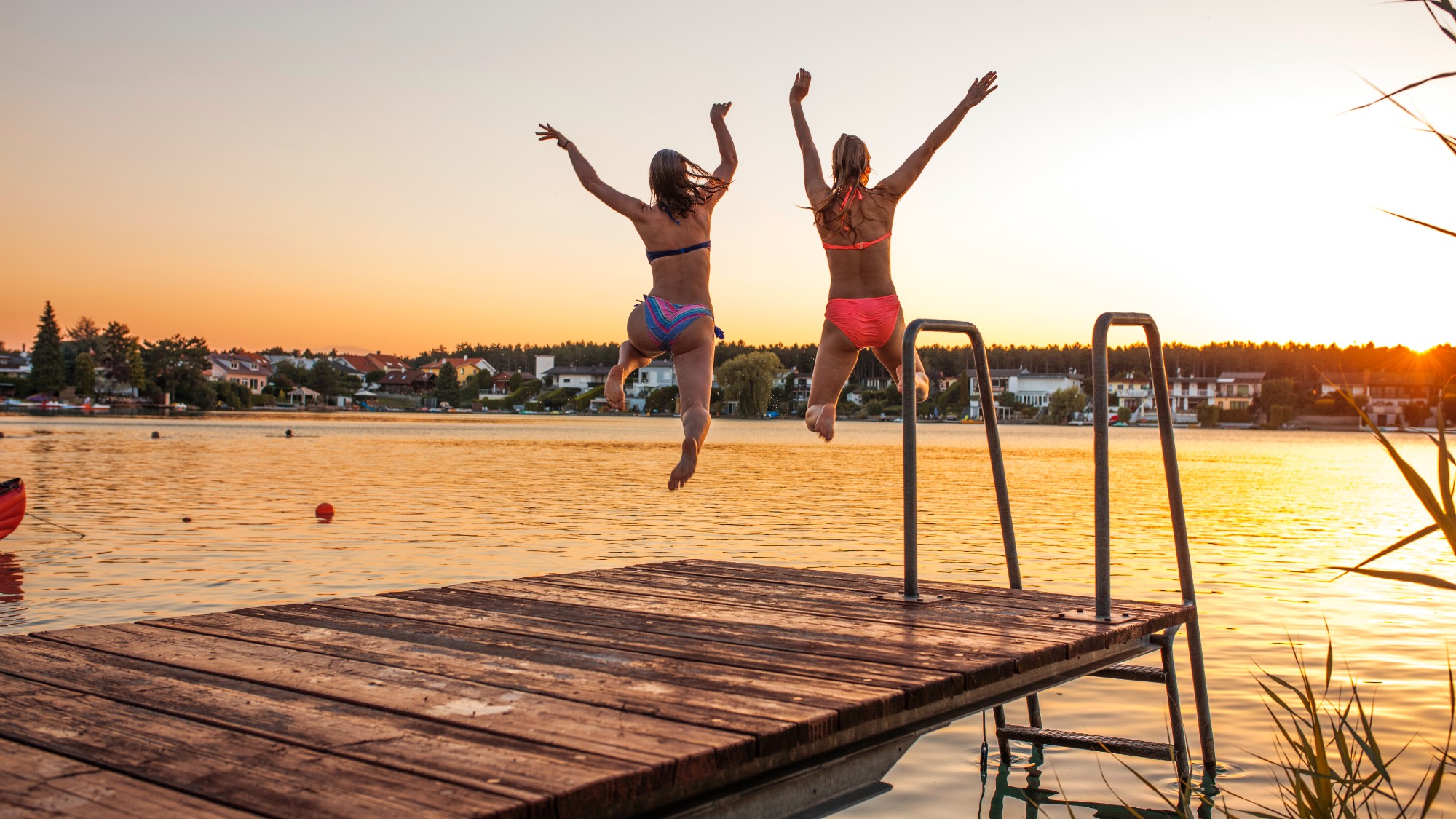 Your inner romper is going to wild out at these 7 adult summer camps
Your inner romper is going to wild out at these 7 adult summer campsThe Week Recommends You're never too old to go back to camp